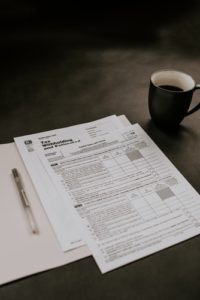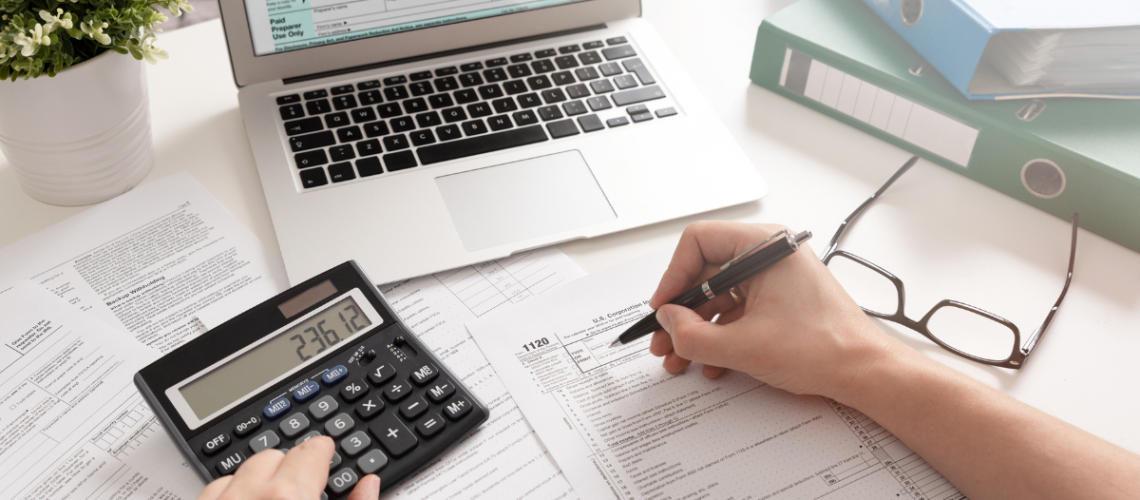In 1998, the Government of Malta introduced the ‘Value Added Tax — ( VAT)’. Since joining the European Union in 2014, Malta has aligned its VAT rate to meet the European Union’s Council Directive.
Self-Employed, Established, and/or Start-Up operating businesses who carry an economic activity as defined below by the Commissioner for Revenue, to include;
- Any trade, profession, or vocation and the provision of any personal services;
- The exploitation of tangible and/or intangible use of their properties for the purpose of obtaining a continuous stream of income;
- The provision by a club, associations or organizations of the facilities or advantages available to its members for a subscription or other consideration;
- The admission of persons to any premises for a consideration;
is considered to be a taxable person and/or a taxable company, and is required by law to register for VAT.
What is the VAT rate in Malta?
The VAT rates in Malta are as follows;
18% — Standard rate;
7% — Applies to any type of accommodations that fall under the umbrella of the Malta Tourism Act;
5% — Applies to confectionery and other edible items; printed goods, supply of electricity; domestic care services for the young, elderly, sick and disabled; medical accessories; specific items that are for exclusive use by disabled individuals; services related to minor repairs (such as bicycles, shoes, leather goods, clothing, and household linen); admission to theaters, art exhibitions, museums, and concerts.
VAT is also applied to goods and services that are imported in Malta. Upon arrival, the VAT owed is calculated by the Comptroller of Customs.

- Pharmaceuticals
- Food for human consumption
- Most forms of domestic transportation including transport by sea between the Maltese islands and international passenger travel,
- Export
- Supply of goods within the community
The following services have a 0% VAT charged on the value of supply, therefore they are considered to be exempt without credit. This means that suppliers who provide these services cannot claim back the input VAT incurred on;
- Water supplied by a public authority
- Health and welfare services
- Supply of buildings and building land
- Renting of permanent properties that are not designated for leisure or commercial
- Insurance and financial services
How is VAT calculated in Malta?
To calculate the VAT price and Net price in Malta, one can either use the following formula;
Let’s assume GST % = 18
Amount = €30,000
- GST Price = (€30,000 x 18) divided by 100
Answer = €5,400 - Net price = €30,000 + €5,400
Answer = €35,400
VAT price is €5,400 and Net Price is €35,400
Or, simply check on Malta Vat Calculator by inputting relevant data and hit calculate.
How to apply for VAT?
To register for VAT, it is recommended to go through the whole process online. It is swift and a straight-forward procedure.
The documentation needed;
- For self-employed and non-limited companies a valid I.D. card or passport.
- For a Limited Liability Company or a Registered Partnership;
1. Proof of legal representation to register on the company’s behalf
2. A copy of the Memorandum and Articles of Association
The process for a successful VAT registration application should take no longer than 7 business days.
How many types of VAT Registrations are there in Malta?
When supplying goods and services in Malta, there are 3 types of VAT Registrations.
These are;
- Article 10 of the VAT Act
- Article 11 of the VAT Act
- Article 12 of the VAT Act
Article 10 of the Vat Act
Taxable individuals and/or companies who supply goods and services and whose yearly turnover exceeds the entry threshold (as per the table below), fall under Article 10 of the VAT Act. These businesses are obliged to charge VAT on their taxable supplies. The VAT incurred can be claimed back.
Anyone who is registered under Article 10 of the VAT Act is;
- Given an identification VAT number with an MT prefix
- Has to issue tax invoices and fiscal receipts
- Needs to file their VAT return quarterly
Under Article 10 of the VAT Act, any input VAT that exceeds the output VAT, will be refunded back.
If the output VAT exceeds input VAT, then the amount due has to be paid prior to the VAT return submission deadline. Failure to pay within the stipulated time-frame will result in a monetary penalty as dictated by the Commissioner for Revenue.
What is Input Tax?
Input tax is the VAT paid on any goods and services that the business operators have received during their economic activity.
What is the Output Tax?
Output tax is VAT charged by the business operators on their goods and services to their clientele.
Instructions can be found here on how to complete the VAT Return for Taxpayers Registered under Article 10.
Article 11 of the VAT Act
Under Article 11 of the VAT Act, businesses whose annual turnover does not surpass the entry thresholds can register for VAT exempt. These businesses do not charge VAT on any of their supply of goods and/or services. In turn, they cannot claim back VAT incurred during their economic activity.
Any businesses or individuals who are registered under Article 11 of the VAT Act are;
- Given an identification VAT number without the MT prefix
- Are required to issue fiscal receipts
- Need to file an annual VAT declaration that is to be submitted by the 15 March of the following year.
Instructions can be found here on how to complete the Declaration for Taxpayers under Article 11
Article 12 of the VAT Act
Companies or individuals who acquire intra-community goods in excess of €10,000 per year have to pay VAT on their acquisitions and therefore fall under Article 12 of the VAT Act.
Any individuals who fall under Article 12 of the VAT Act need to;
- File an annual VAT declaration that is to be submitted by the 15 February of the following calendar year.
- Payments on any intra-community acquisitions or purchases of services need to be submitted to the Office of The Commissioner for Revenue — together with Form 004/2020 — by no later than 1 month and 15 days following either the date of the invoice or the month during which service was received.
Instructions can be found here on how to complete the Declaration for Taxpayers Registered under Article 12
N.B. Maltese fiscal year starts on January, 01st.
Threshold Categories
There are 3 different threshold categories that consist of;
- Economic activity consisting mainly of the supply of goods
Entry Threshold: €35,000
Exit Threshold: €28,000 - Economic activity consisting mainly of supply of services with a relatively low value-added
Entry Threshold: €24,000
Exit Threshold: €19,000 - Other economic activity
Entry Threshold: €20,000
Exit Threshold: €17,000
What type of documentation is required to keep track of VAT transactions?
The following documentation pertaining to VAT transactions in Malta needs to be kept for a period of 6 years. During this time, said documentation may need to be produced if and when is requested by the Department For Verification;
- Fiscal receipts and receipts from everyday purchases
- Import/export customs documentation
- Invoices from sales/purchases
- Debit and credit notes
- Cash and petty cash books
- Sales ledgers
- VAT documents
- Business-related banking activities
- Records that are relevant to the business economic activities
Inspections are also routinely carried out to ensure that all registered VAT business operators have;
- Filed and submitted accurate tax forms and/or declarations and proper amounts.
- Issued proper fiscal receipts on all sales to their clientele.
Declaring VAT online in Malta
VAT Declaration Return submissions can be done entirely online. Small business operators can submit their VAT Return online using their E-ID credentials.
If taxable individuals and/or companies opt to assign the filing of their VAT return to a;
- the trusted person on their behalf, then those individuals have to submit a CFR03 form.
- registered tax practitioner and/or firm on their behalf then they need to submit a CFR02 form.
VAT Refund Form
The VAT Refund form is called the 8th Directive. This process normally takes 4 months. If a refund is expected and not received during this period the business and/or individual will benefit from a 0.33% interest rate per month for every delayed payment.
Instructions on how to submit the online 8th Directive VAT Refund
Where can I make my VAT payment?
Payments can be made online on a 24/7 basis, or at any Maltapost Branch from Monday – Saturday during working office hours across Malta and Gozo.
Any submissions done online will receive a confirmation of receipt and notice of any payment warranted.
How do I access my VAT Statement?
VAT statements can be viewed online through your CFR Account.
Adjustments on VAT Returns
In the case that an amendment needs to be submitted, an ‘Adjustment Form’ needs to be duly filled and submitted to the Office of the Commissioner for Revenue. A 10% administrative fee will apply along with a monetary penalty as dictated by the Commissioner for Revenue on any VAT overdue.
Can a Registered VAT Number be passed on?
Regardless of whether a business — in this case the business owner is the sole proprietor — is being transferred to a family member or being sold, a registered VAT number cannot be passed on. The original owner needs to first de-register their business. The new owner can then either use his/her existing VAT number, or file for a new application.
If the business is part of a Limited Liability Company, then in that case, the same VAT number can be carried over to the new owner. Malta Financial Services Authority (MFSA) must handle the transfer of ownership and notify the VAT Department of the new board of directors and shareholders. Certified copies of Memorandum and Articles of Association need to be submitted.
De-Registering Your VAT number
To de-register your Maltese VAT, all outstanding payments need to be settled and all VAT returns need to be up to date.
To de-register taxable individuals and/or companies need to contact the VAT’s department Customer Care Unit where they will be guided on how to proceed with this process.
As of May 2018, the VAT Customer Care Services has integrated with Business 1st. Qualified personnel are available to answer and direct any inquiries that may arise.
For a more comprehensive guide to Malta’s VAT Rules and Legislation please visit The Commissioner for Revenue.
For more information on SOHO’s Office Space Solutions and our platform of services in Malta, connect with us on Facebook, email us at info@sohomalta.com; or simply drop in at one of our 3 office locations in Ta’Xbiex, Gzira and St.Julian’s; or speak directly with one of our staff by calling +356 9933 4333. Our team will gladly assist you in any inquiries you may have.
Your opportunities are endless. Re-imagine your office experience with a private office solution in Malta with SOHO Office Space.




